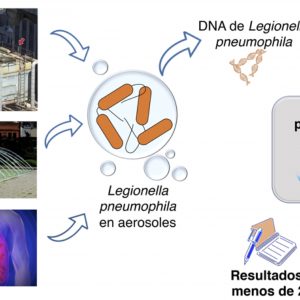Brief description of the technology solution and the added value it provides
A research team from the Centre for Plant Biotechnology and Genomics (CBGP) at the Universidad Politécnica de Madrid has found several genes that, when are subjected to a specific modification, enhance seed germination under standard as well as under stress growth conditions. Plants produced by these seeds are indistinguishable from their parental wild type lines except for the increased growth observed under specific stress conditions. These studies have been carried out in the model plant Arabidopsis thaliana (model for oil seed crops).
For the next decades there is a clear need to increase plant yield (food) and biomass (energy) from the same area of land to sustain world population. Also the amount of non-arable land is estimated to raise, in part due to lack of water or/and salinization (climate change), pollution and urban settlements. To meet this demand, enhancing crop performance under stress conditions will boost plant productivity.
Description of the technological base
In the presence of adverse conditions seeds greatly reduce their germination potential and plants stop growth. Although this natural strategy allows for reallocation of resources to increase plant survival, it severely reduces yield and biomass.
By modifying the activity of specific genes we have increased seed germination under stress (salinity) by 15 to 35 % without compromising plant survival.
Some of these plants also show increased biomass when compared to non-modified controls.
“Biotechnological application to increase seed germination as well as plant biomass under stress conditions”
Market demands
Agrifood (FAO)
- World population is estimated to increase by 30% in 2050 together with an 10% estimated rise in average daily calorie availability indicates that cereal production would need to increase by 40%.
- To reach those levels of food availability, countries can either increase production or increase net imports of food or a combination of both.
- All current quantitative assessments show that climate change will adversely affect food security. On average, food prices are expected to rise due to climate change.
Energy
- The advent of biofuels has the potential of changing all that and causing world demand to be higher, depending on the energy prices and government policies.
- Productivity growth could significantly reduce the negative effect of biofuel production on food availability
“Market demands good protection during the seed germination period, supporting early plant development and enhancing stress tolerance at an early stage”
Competitive advantages
- Seeds producing plants with stress resistant traits have usually very low germination efficiencies. Inversely, seeds that germinate better under stress produce plants less tolerant. Our solution provides both desirable traits combined in one genotype.
- 15 to 35 % increased seed germination under stress by without compromising plant survival.
- Some of these plants also produce increased biomass when compared to non-modified controls.
- Applicable to recovery of wastelands for agricultural production.
- Potentially applicable to other plant species, specially oilseed crops (rape, sunflower, etc.).
- Alternative application to increase biomass coupled to phytoremediation of pollutants (using trees).
Development stage
- Concept
- Research
- Lab prototype
- Industrial prototype
- Production
Contact
GROWMORE
Luis Oñate Sánchez
Centro de Biotecnología y Genómica de Plantas – CBGP (UPM_INIA)
e:
w: http://www.cbgp.upm.es/en/seed-regulation.php
Contacto UPM
Área de Innovación, Comercialización y Creación de Empresas
Centro de Apoyo a la Innovación Tecnológica – UPM
e:















